Abstract
Mobile coronary care has been provided in Brighton by ambulance personnel without immediate help from physicians or nurses. No additional vehicles or staff were required. The capital cost of the experiment was therefore small and additional running costs were negligible. The results have been monitored by retrospective analysis of electrocardiograms recorded in the ambulance and stored on magnetic tape. In the first 12 months of operation to July 1972, 1,082 patients with suspected cardiac emergencies were carried in two vehicles. Subsequent analysis showed that 76% of these patients had acute symptoms from ischaemic heart disease or had circulatory arrest. Eighty-six per cent. of arrhythmias were diagnosed correctly by the ambulance attendants. Though only eight cases of primary ventricular fibrillation occurred during or shortly before transit all were successfully reversed, and five of these patients subsequently left hospital alive. Other benefits of the scheme have included an appreciable reduction in the median delay between onset of presenting symptoms in patients with acute myocardial ischaemia and their admission to hospital.
Full text
PDF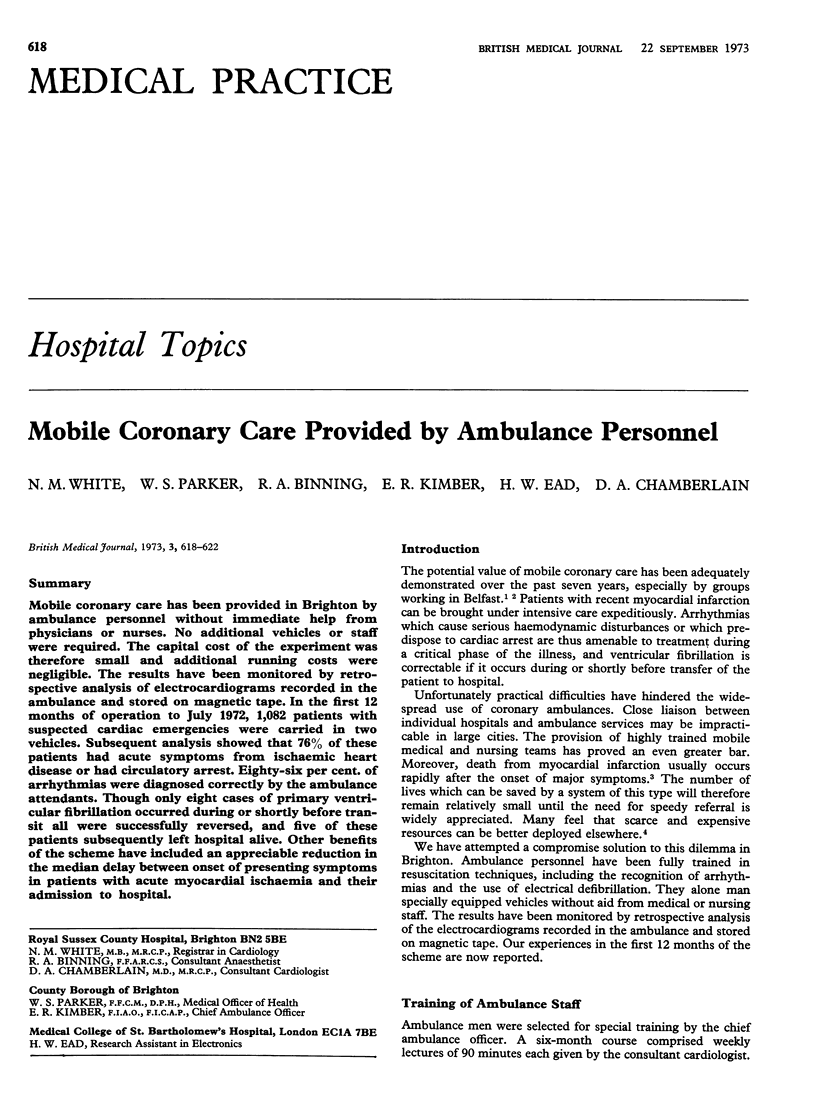
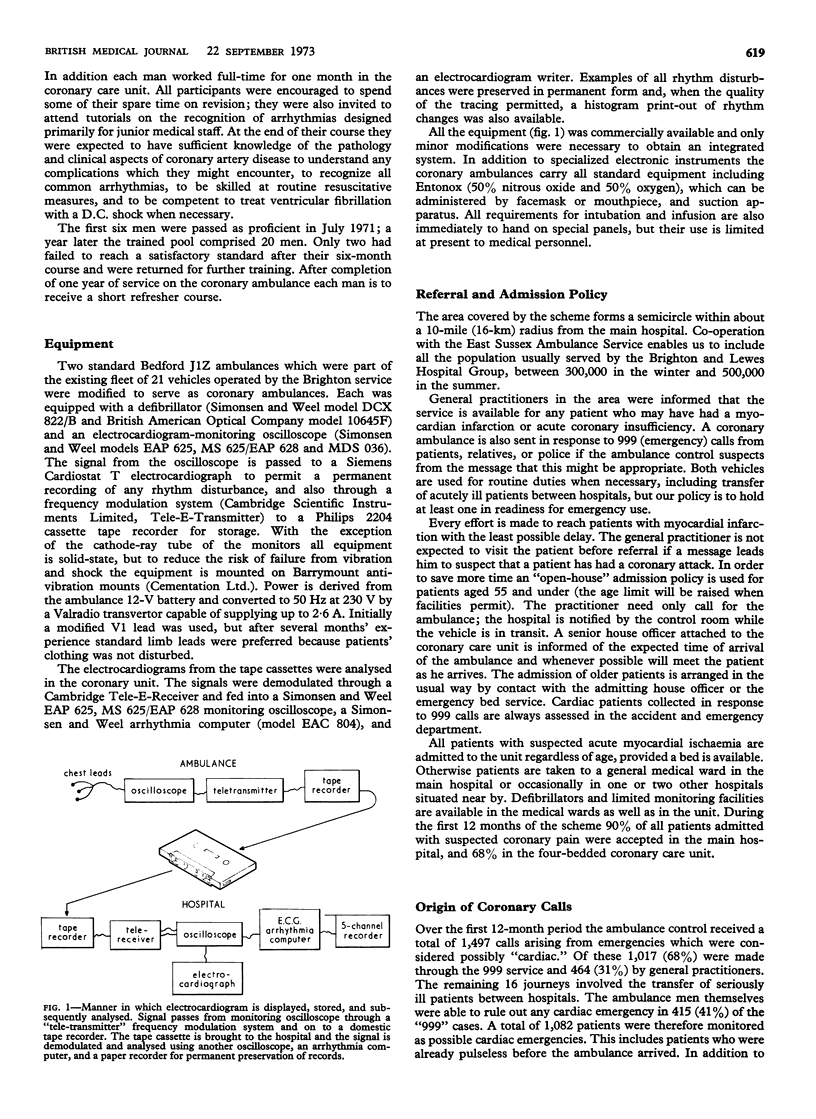
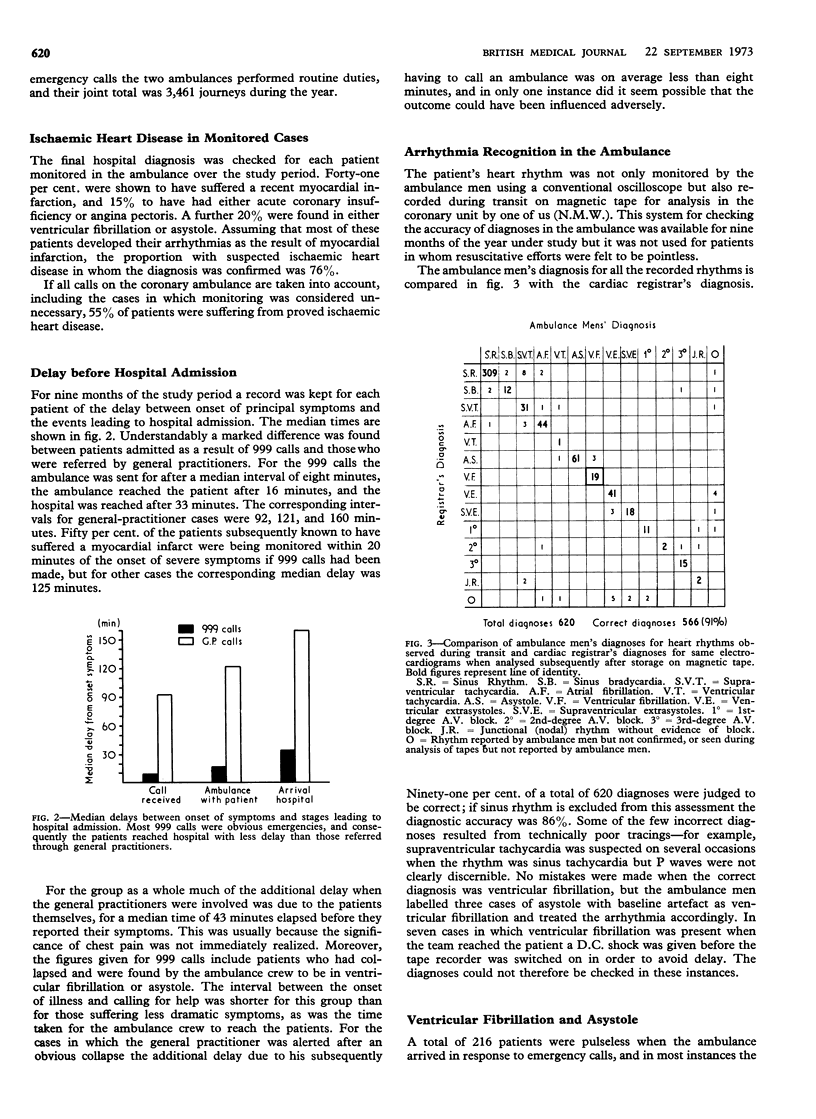
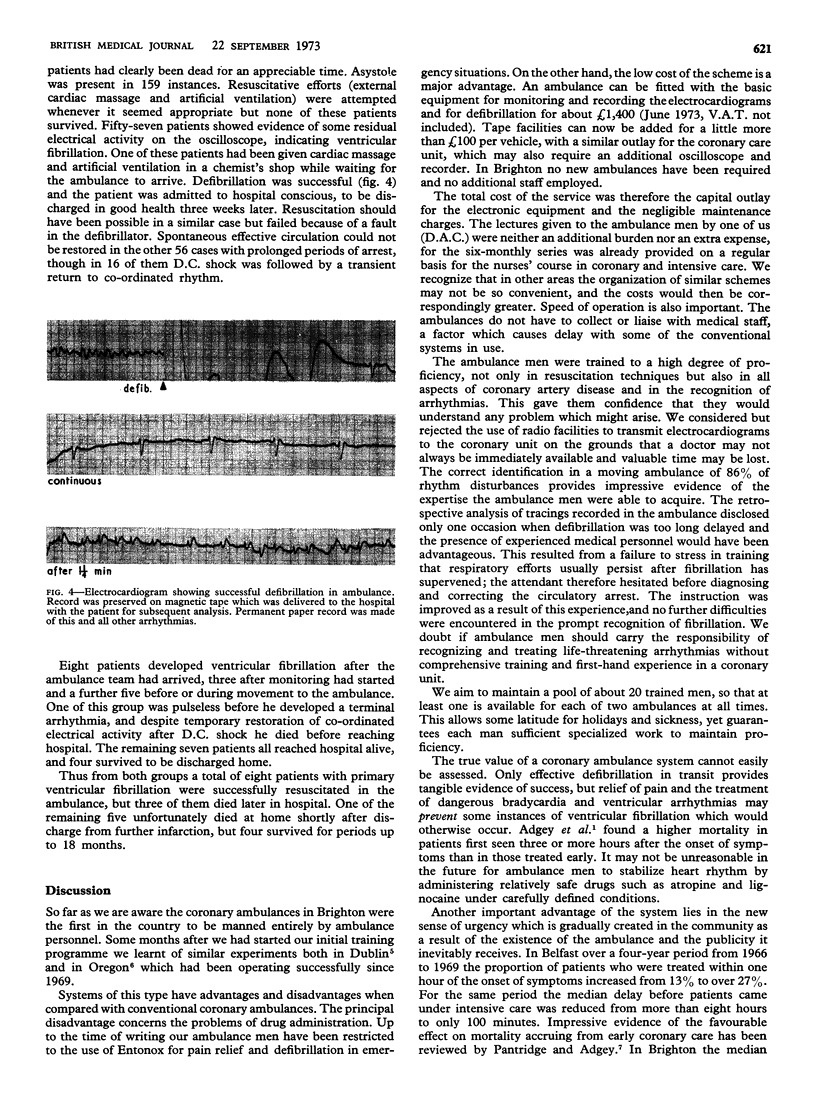
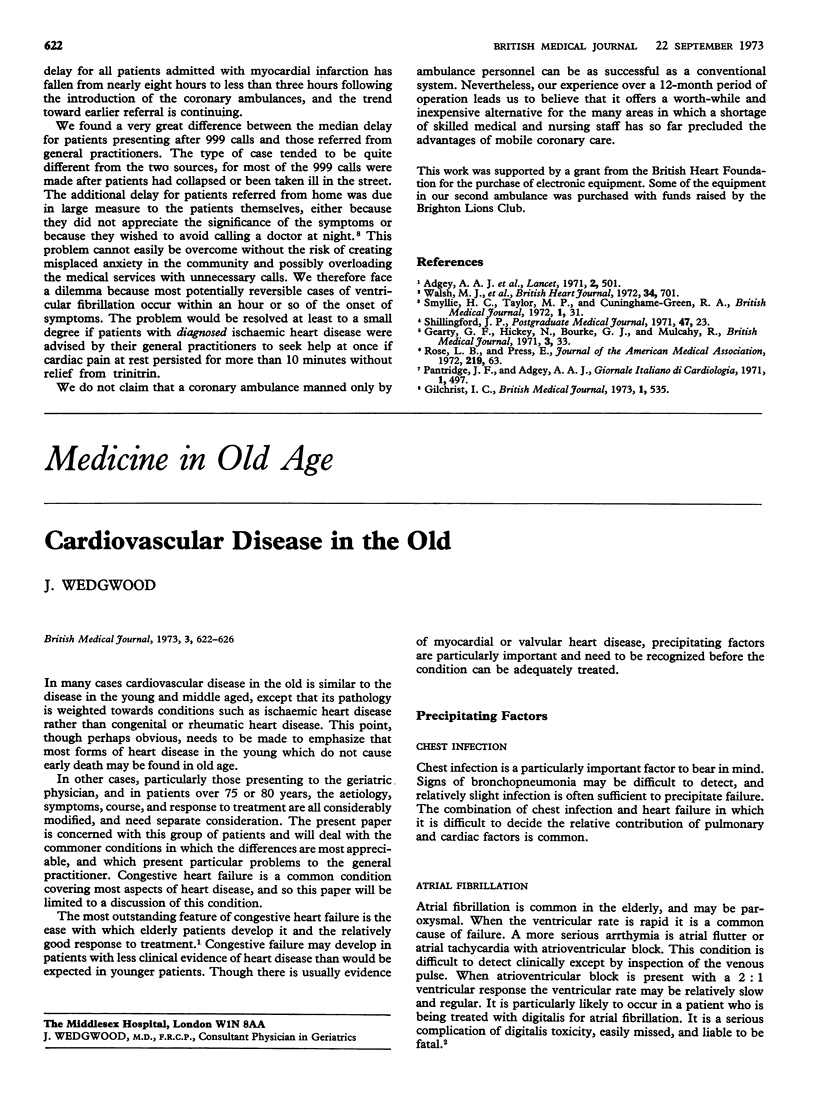
Images in this article
Selected References
These references are in PubMed. This may not be the complete list of references from this article.
- Adgey A. A., Allen J. D., Geddes J. S., James R. G., Webb S. W., Zaidi S. A., Pantridge J. F. Acute phase of myocardial infarction. Lancet. 1971 Sep 4;2(7723):501–504. doi: 10.1016/s0140-6736(71)90434-x. [DOI] [PubMed] [Google Scholar]
- Shillingford J. P. The management of acute myocardial infarction. Postgrad Med J. 1971 Jan;47(543):23–26. doi: 10.1136/pgmj.47.543.23. [DOI] [PMC free article] [PubMed] [Google Scholar]
- Smyllie H. C., Taylor M. P., Cuninghame-Green R. A. Acute myocardial infarction in Doncaster. I. Estimating size of coronary care unit. Br Med J. 1972 Jan 1;1(5791):31–34. doi: 10.1136/bmj.1.5791.31. [DOI] [PMC free article] [PubMed] [Google Scholar]



